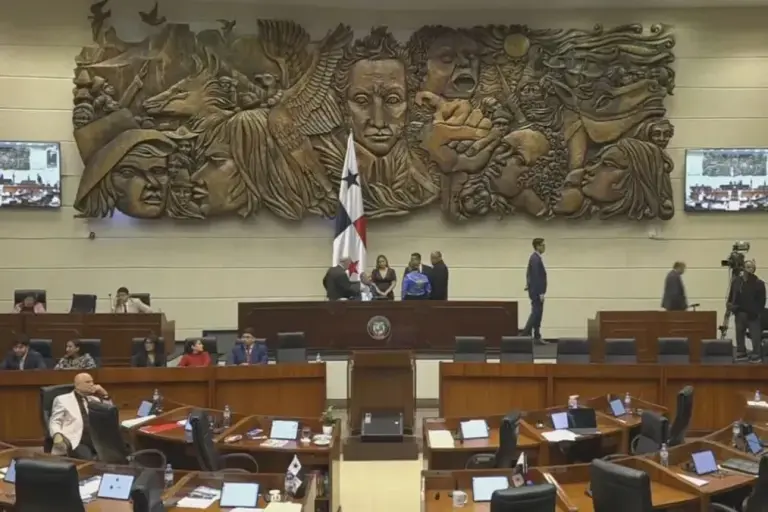PANAMA CITY, Panama – The National Assembly of Panama definitively approved a controversial bill on Tuesday that modifies requirements for practicing law, setting up a potential constitutional confrontation with President José Raúl Mulino. Law 168, which seeks to modify Law 350 of 2022 and relax the standards for obtaining legal certification, passed its third and final debate by insistence with 50 votes in favor, zero against, and zero abstentions.
The approval came after the Government Commission recommended no changes to the original proposal that President Mulino had previously vetoed. The bill now returns to the president’s desk, where he must decide whether to enact it into law or refer it to the Supreme Court for constitutional review.
Presidential Veto Overridden by Legislative Body
On September 18, President Mulino exercised his veto power against the proposed reforms, arguing they represented a significant step backward for the legal profession. In his veto message, the president stated the reforms would undermine professional standards that the public rightfully expects from legal practitioners.
“The reforms represent a significant setback in the practice of law, by preventing the elevation of professional levels that the career demands and that the citizenry legitimately demands,” Mulino stated in his September veto justification [Translated from Spanish].
During a press conference addressing his decision, the president emphasized he had carefully considered the matter and consulted extensively with professional guilds before reaching his conclusion. He maintained the proposed legislation was “not convenient” for the country’s legal system.
International Standards and Professional Excellence at Stake
President Mulino highlighted Panama’s need to align with international benchmarks for legal education and practice. He argued that maintaining high standards is crucial for the nation’s development and professional reputation.
“It is fundamental for the country to stay updated and directed toward the strengthening of professional excellence, through the constant renewal and revision of the regulations that govern legal practice,” the president said last September [Translated from Spanish].
The president specifically criticized the proposed reduction in academic rigor, warning that such measures could erode public trust in the legal system. He expressed concern that lowering entry barriers might be perceived as diminishing the criteria for professional formation and evaluation.
Ambiguity and Lack of Specific Controls
Beyond the broader philosophical objections, President Mulino identified specific technical deficiencies in the proposed legislation. He pointed to ambiguous language that failed to clearly define essential requirements, particularly concerning academic theses.
“The wording of the article is ambiguous, since it does not clearly explain what requirements said thesis must fulfill. This lack of clarity is aggravated because the norm also does not establish any type of control or specific academic requirement for its evaluation,” Mulino emphasized at the time [Translated from Spanish].
The president’s detailed critique suggested the legislation suffered from both substantive and procedural flaws that could compromise the quality of legal education and practice in Panama.
Constitutional Showdown Looms
With the National Assembly’s decisive vote to approve the bill by insistence, the political and constitutional battle now enters its final phase. President Mulino faces a critical decision that will test the balance of power between the executive and legislative branches.
The president can either sanction the bill into law despite his previously stated objections, or exercise his authority to send the legislation to the Supreme Court for constitutional review. The latter option would place the ultimate decision about the legal profession’s future standards in the hands of Panama’s highest judicial authority.
The overwhelming support in the National Assembly – with no votes against or abstentions – demonstrates significant legislative consensus behind the reforms, creating a challenging political environment for the president to maintain his opposition. The outcome will establish important precedents for both the legal profession and the dynamics between Panama’s governmental branches.



